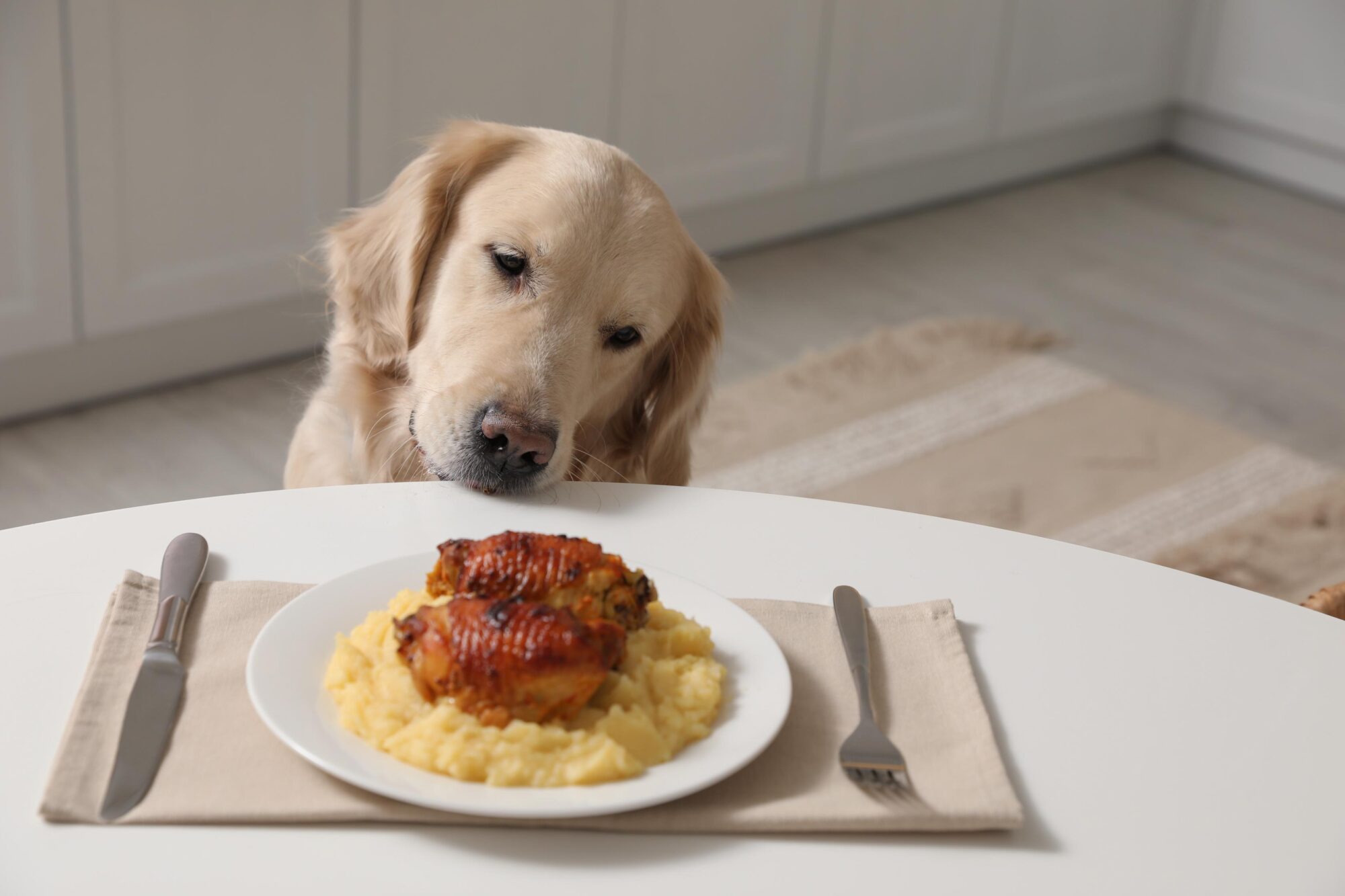Holiday Hazards for Pets: Pancreatitis in Dogs and Festive Foods

The holiday season is a time for merriment and indulgence, but it’s also a time when our furry friends face unexpected health risks. As a concerned pet owner, it’s important to be informed about the hazards your dog could encounter during the festivities. At The Gentle Vet, we want to help you make sure your pet enjoys the holiday season as safely as possible.
Hidden Dangers of Holiday Feasting
It’s tempting to slip Fido a scrap from the holiday table, but did you know that common festive foods could pose serious health risks? Dogs are particularly susceptible to conditions like pancreatitis and kidney disease when they ingest foods high in fat or sugar. Pancreatitis in dogs is an inflammation of the pancreas, often triggered by rich foods. Symptoms can include vomiting, diarrhea, and severe abdominal pain.
Kidney Disease in Dogs: A Silent Scourge
Fatty foods aren’t the only culprits. Salt-laden snacks and certain fruits, like grapes and raisins, can lead to kidney disease in dogs. Early symptoms are hard to detect, but the condition can be life-threatening if not treated promptly. Always be aware of what your pup is munching on, especially during social gatherings when your attention is divided.
The Bone Controversy: Turkey and Chicken Bones
It’s a common myth that giving your dog a turkey or chicken bone is a tasty treat that cleans their teeth. In reality, poultry bones can splinter and become lodged in your dog’s digestive system, which could cause painful and sometimes fatal complications.
What About Peanut Butter?
You may be wondering, “Can dogs eat peanut butter?” The answer is yes—but with some caveats. Always choose a brand without xylitol, a sugar substitute that’s toxic to dogs. Peanut butter can be a good source of protein and healthy fats when given in moderation.
Pet Safety Tips for the Holiday Season
- Keep a lid on the trash can to prevent scavenging.
- Store hazardous foods out of reach.
- Train your dog to obey commands like “leave it” and “stay” to prevent them from grabbing risky foods.
- Talk to your vet about safe treats and snacks you can offer during festivities.
Recognizing Early Warning Signs: Be Proactive, Not Reactive
Being aware of your dog’s normal behavior and habits can go a long way in the early detection of health issues. For pancreatitis, watch out for lethargy, loss of appetite, and changes in posture, like a “hunched over” look. These could be early signs that something is wrong and prompt action is required.
When it comes to kidney disease, early detection can be more challenging. Symptoms like increased thirst and urination can easily go unnoticed amidst the holiday bustle. But if you observe a change in your pet’s coat texture, a decrease in weight, or uncharacteristic sluggishness, it’s time to consult a vet.
The sooner you identify a problem, the quicker it can be addressed, increasing the likelihood of a positive outcome. Regular vet check-ups are invaluable, especially as your dog ages or if they have existing health issues.
The Gentle Vet: Your Partner in Pet Health
As you navigate the holiday season, make pet safety a priority. Be vigilant about what your dog eats and consult with professionals when in doubt. The Gentle Vet team is committed to providing top-notch care for your furry family member.
We encourage you to get in touch to discuss your pet’s nutritional needs and any concerns you may have regarding pancreatitis in dogs or other health issues. To set up an appointment, you can fill out our online contact form or give our office a call at (330) 665-5915. We wish you and your family the happiest of holidays.
